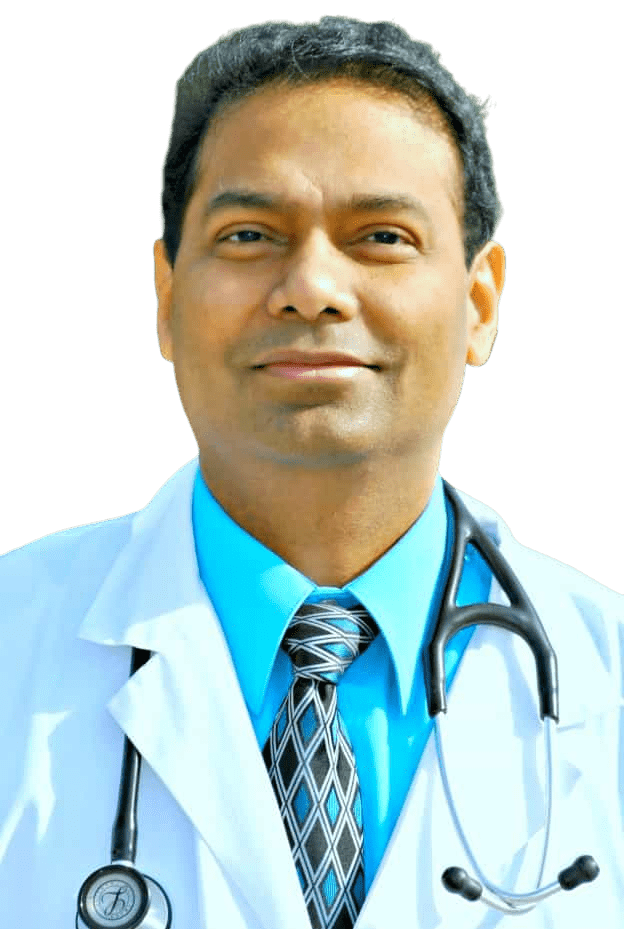Stress has become a common part of modern life. Many factors contribute to the build-up of stress, from work deadlines and family responsibilities to unexpected health concerns. While some stress is normal, chronic stress can lead to both mental and physical health problems if not managed properly. Managing stress effectively is key to living a healthier, more balanced life. At MD First Primary and Urgent Care in Lancaster, SC, Dr. Amrendra Kumar offers practical stress management strategies to help individuals cope with the pressures of daily life.
Understanding Stress: What Is It?
Stress is a natural response that your body uses to handle challenging situations. When you’re faced with a threat or demand, your body activates the “fight or flight” response, preparing you to confront or escape the challenge. While this response is helpful in short bursts, long-term stress can wear down your physical and mental well-being.
Symptoms of stress include:
- Headaches and muscle tension
- Difficulty sleeping or insomnia
- Irritability and mood swings
- Fatigue and difficulty concentrating
- Upset stomach or digestive issues
If left unchecked, chronic stress can lead to more severe health conditions such as hypertension, heart disease, anxiety disorders, and depression. Fortunately, stress management techniques can help you regain control of your well-being.
1. Mindfulness Meditation: Staying Grounded in the Present
Mindfulness meditation is a powerful tool for reducing stress by helping individuals remain grounded in the present moment. When stressed, people often focus on past mistakes or future worries, exacerbating their anxiety. Mindfulness practices encourage you to focus on your breath, bodily sensations, or a single point of awareness, helping your mind let go of intrusive thoughts.
Mindfulness is scientifically proven to reduce stress and improve emotional regulation. The practice doesn’t require special equipment or a large time commitment—just a quiet space and a few minutes of focus. MD First Primary and Urgent Care promotes the practice of mindfulness as an accessible technique that individuals can use daily to manage stress more effectively.
2. Physical Activity: Moving to Relieve Stress
Exercise is one of the most effective stress relief techniques. Physical activity improves physical health and boosts the production of endorphins, your body’s natural mood elevators. Regular exercise can reduce stress hormones like cortisol while improving sleep, increasing energy, and enhancing mental clarity.
Light exercises like walking, yoga, or stretching can help release physical tension and reduce stress. Lancaster, SC, offers many outdoor spaces where people can enjoy activities like hiking or walking, further aiding relaxation by immersing individuals in nature.
Dr. Kumar encourages patients to integrate physical activity into their daily routines, even in small increments. This could be a brisk walk during lunch breaks or a few minutes of stretching between tasks.
3. Time Management: Reducing Overwhelm
One of the leading causes of stress is feeling overwhelmed by too many responsibilities. Whether it’s managing work deadlines or personal obligations, poor time management can lead to heightened anxiety and mental exhaustion.
Implementing better time management techniques can alleviate these feelings. Simple practices such as setting priorities, breaking tasks into smaller steps, and using to-do lists can help create a sense of control over your schedule. Dr. Kumar advises patients at MD First Primary and Urgent Care to also build buffer times throughout the day to account for unexpected tasks or delays, reducing the pressure to rush from one responsibility to another.
Organizing your day and managing your time wisely can reduce the chances of being overwhelmed by tasks and lower overall stress.
4. Healthy Eating: Fueling Your Body and Mind
Your diet plays an important role in stress management. Poor nutrition can exacerbate the effects of stress, leading to mood swings, fatigue, and weakened immunity. In contrast, a balanced diet of whole grains, lean proteins, fruits, and vegetables helps stabilize your energy levels and mood.
Certain foods, such as those high in omega-3 fatty acids (found in fish, nuts, and seeds), are known to support brain health and reduce the impact of stress. On the other hand, excessive caffeine and sugar can contribute to heightened anxiety and erratic energy levels.
At MD First Primary and Urgent Care, Dr. Kumar encourages patients to adopt healthier eating habits that promote physical and mental well-being. A nutritious diet is essential for managing stress and supporting long-term health.
5. Sleep Hygiene: The Power of Rest
Sleep is crucial for mental and physical recovery. However, stress often interferes with getting restful sleep, creating a vicious cycle. Lack of sleep increases irritability, reduces concentration, and weakens the immune system, making it harder to manage stress effectively.
Improving sleep hygiene can help break this cycle. Establishing a regular sleep schedule, creating a relaxing bedtime routine, and ensuring your sleep environment is conducive to rest are all effective ways to enhance sleep quality.
Dr. Kumar advises patients to limit screen time before bed, avoid heavy meals or caffeine in the evening, and keep their bedrooms cool and dark. Small changes to your nighttime routine can significantly improve sleep quality, ultimately reducing stress.
6. Social Support: The Importance of Connection
Human connection is a powerful antidote to stress. Sharing your thoughts and feelings with friends, family, or a professional counselor can help you feel understood and less isolated. Social support buffers against stress by providing emotional relief and offering different perspectives on problems.
If you’re struggling with stress, don’t hesitate to seek support from others. Lancaster, SC, has a close-knit community where people can connect with loved ones or seek out local support groups.
MD First Primary and Urgent Care also provides counseling services and stress management resources, ensuring that patients have the support they need to cope with life’s pressures.
7. Relaxation Techniques: Breathing and Progressive Muscle Relaxation
Simple relaxation techniques such as deep breathing exercises and progressive muscle relaxation (PMR) are highly effective in reducing the physical effects of stress. These techniques work by calming the nervous system and lowering the body’s stress response.
- Deep Breathing: Taking slow, deep breaths helps activate the parasympathetic nervous system, which counteracts the stress response and promotes relaxation.
- Progressive Muscle Relaxation: This technique involves tensing and slowly releasing different muscle groups in the body, helping to release physical tension and calm the mind.
These practices can be done anywhere and only take a few minutes to complete, making them ideal for managing stress throughout the day. Dr. Kumar recommends incorporating these techniques into daily routines to alleviate tension quickly.
Moving Toward Stress-Free Living
While stress may be unavoidable, it doesn’t have to control your life. By integrating these stress management techniques into your daily routine, you can take proactive steps toward better mental and physical health. At MD First Primary and Urgent Care in Lancaster, SC, Dr. Amrendra Kumar is dedicated to helping the community manage stress and improve overall well-being. Whether through mindfulness, physical activity, or professional support, countless ways exist to reduce stress and lead a healthier, more balanced life.
Sources:
- Grossman, P., & Niemann, L. (2010). Mindfulness-based stress reduction and health benefits: A meta-analysis. Journal of Psychosomatic Research.
- Selye, H. (2019). The Stress of Life: Understanding Stress and Its Effects on Health. New York: McGraw-Hill.
- Oken, B. S., & Chamine, I. (2015). The Role of Exercise in Stress Management. Sports Medicine.




